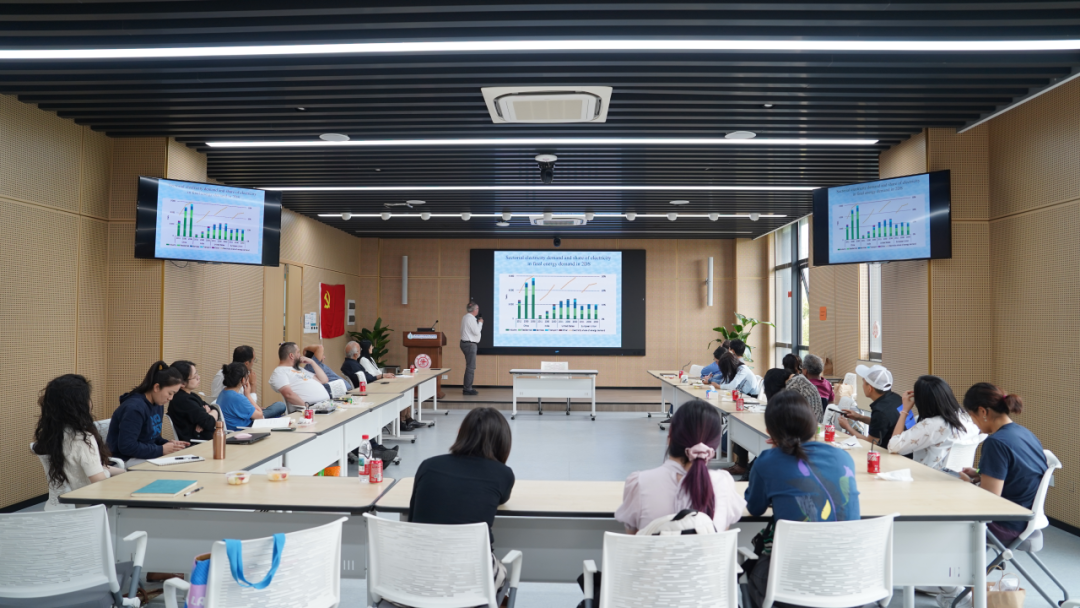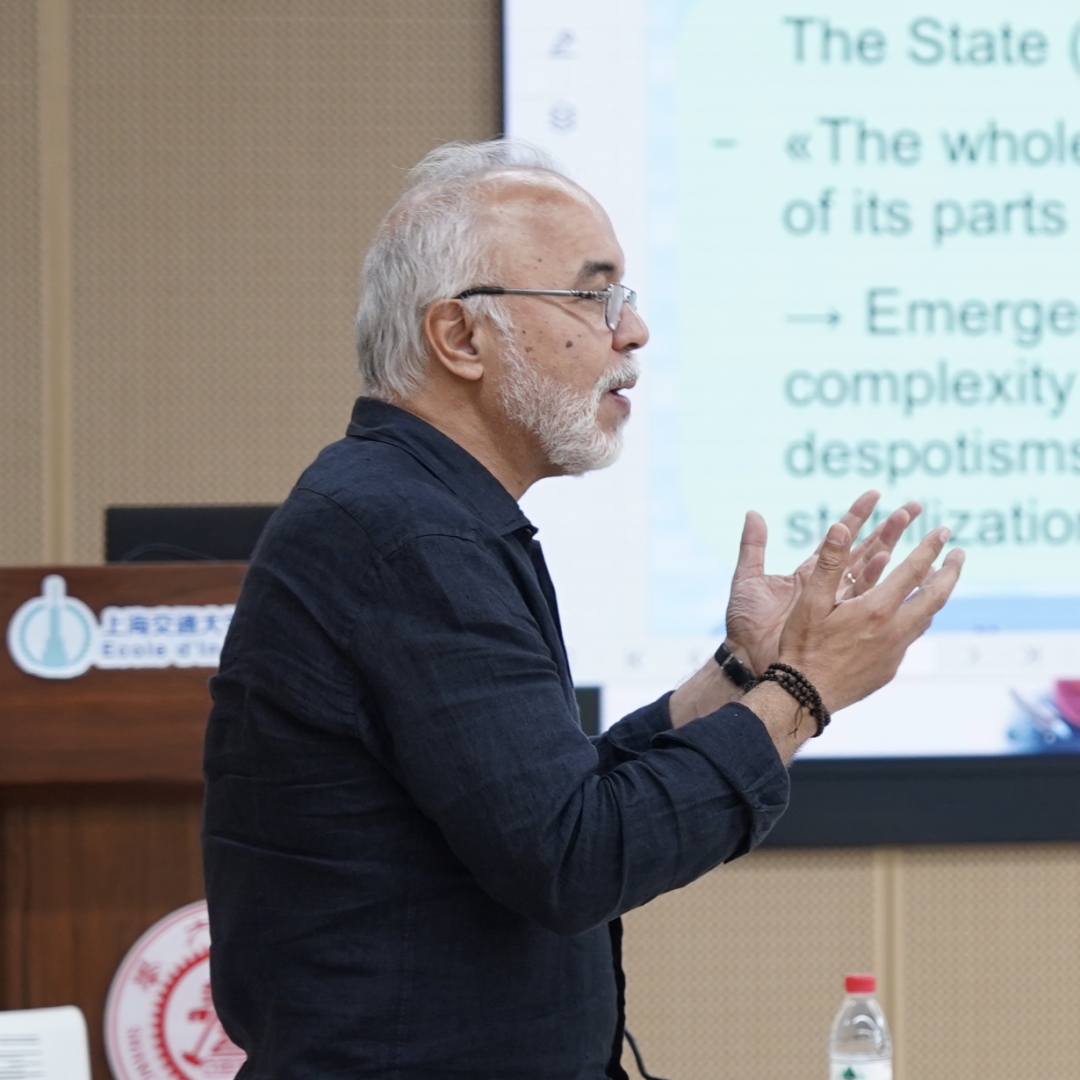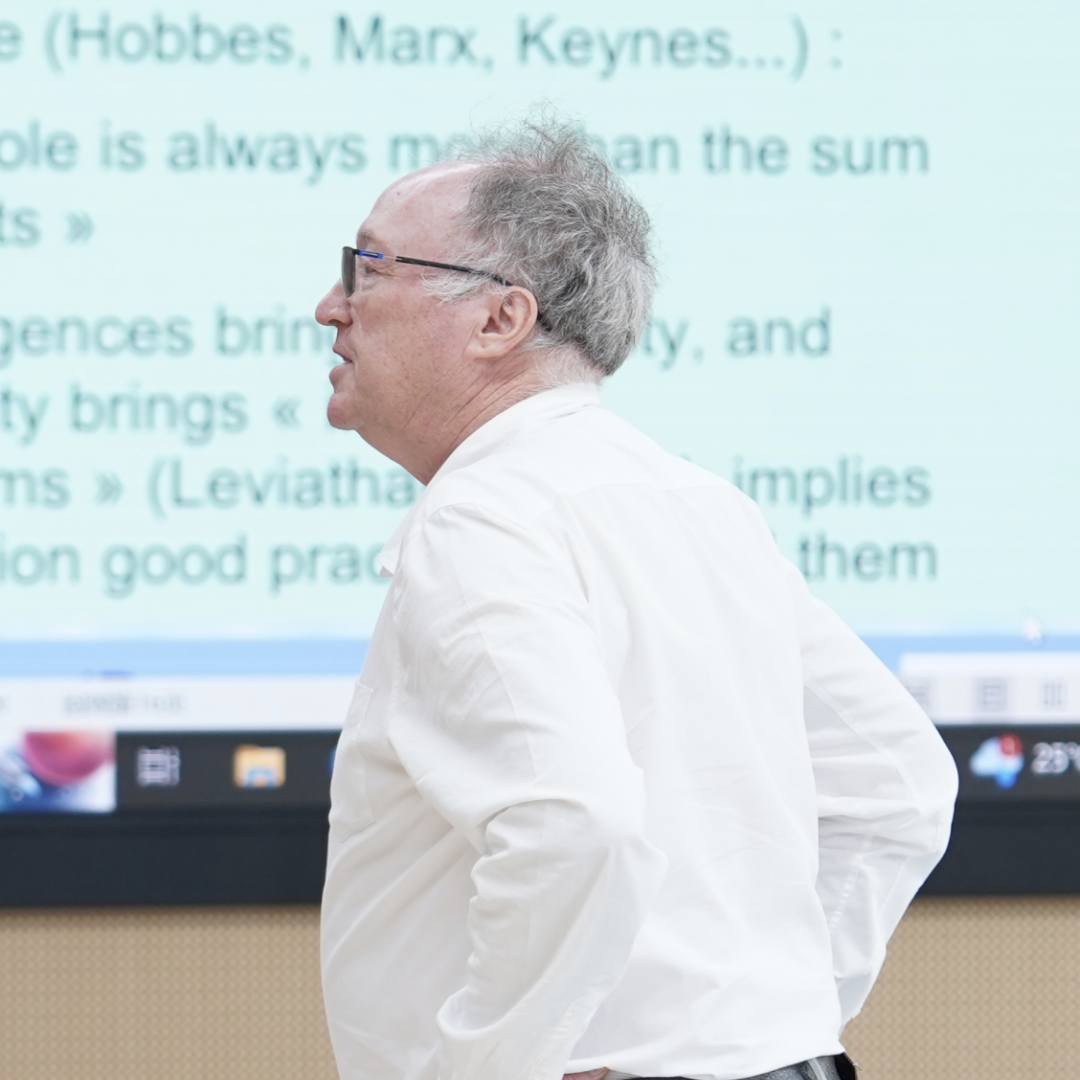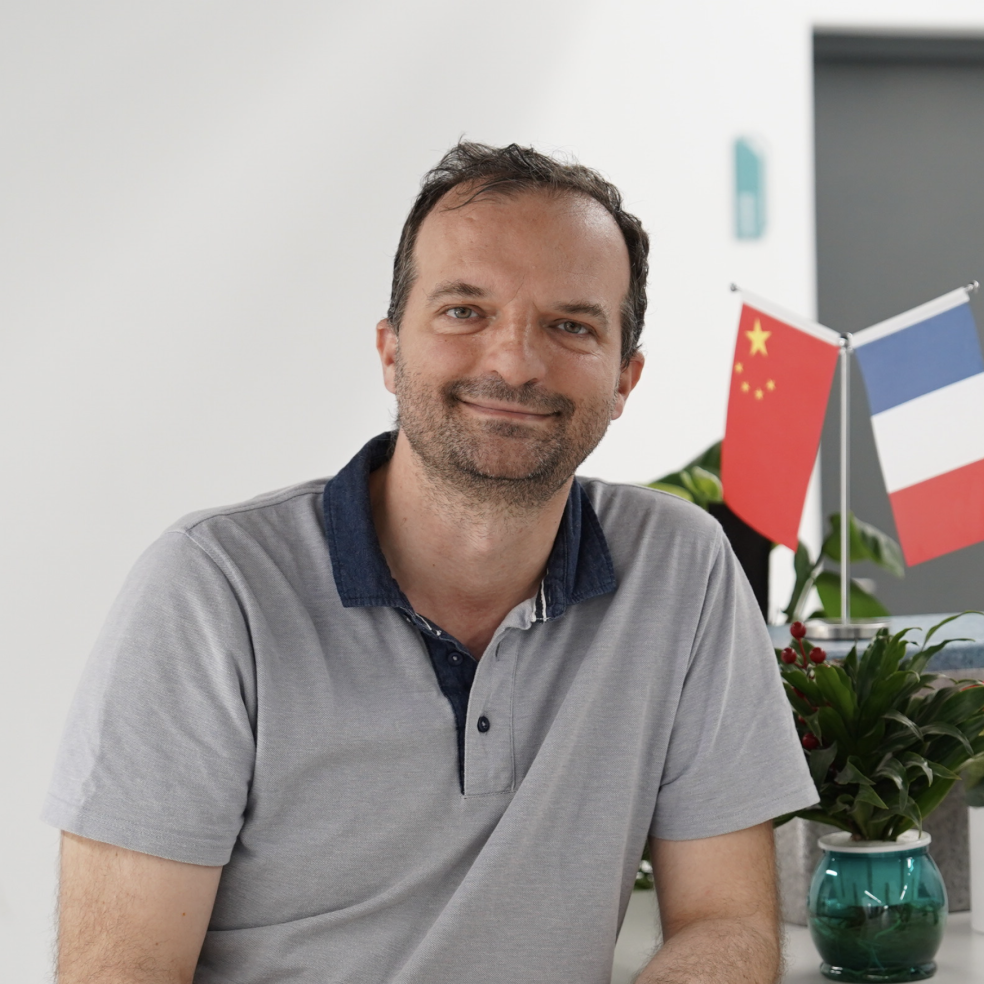
On April 24, 2025,SJTU Paris Elite Institute of technology hosted an academic lecture titled "Energy and Society: Identifying the Limits?" delivered by Professor François CAUNEAU from Mines Paris and invited professor of SPEIT. The lecture delved into the history, current status, and future challenges of energy development, attracting participation from faculty members across various departments of SPEIT, including the School of Electrical Engineering and the School of Smart Energy, as well as visiting professors from MINES Paris and TELECOM Paris. Attendees included teachers and students from diverse professional fields such as energy, electronic information, mechanical engineering, Mathematics and Physics, cultural, linguistics, etc.
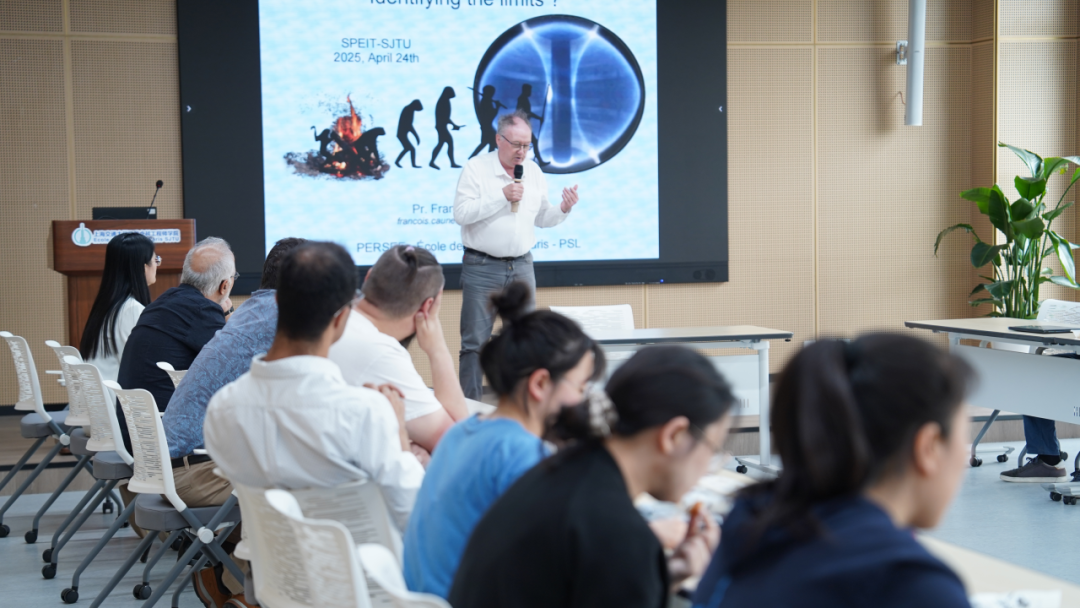
The Science and History of Energy
Prof. CAUNEAU traced the conceptual foundations of energy, from Heraclitus to Feynman, highlighting key breakthroughs in thermodynamics, relativity, and quantum mechanics. He emphasized that "everything is movement," a core principle underlying energy dynamics.
Global Energy Landscape and Challenges
The lecture presented stark realities: fossil fuels still dominate, but renewables (solar, wind, etc.) hold immense potential. Data revealed disparities in renewable energy adoption between Europe and China, underscoring uneven global progress. Notably, internet-related electricity consumption has surpassed aviation since 2017 and now ranks as the world’s third-largest energy consumer, with demand doubling every four years.
Entropy and the Sustainability Dilemma
Prof. CAUNEAU traced the conceptual foundations of energy, from Heraclitus to Feynman, highlighting key breakthroughs in thermodynamics, relativity, and quantum mechanics. He emphasized that "everything is movement," a core principle underlying energy dynamics.
Pathways Forward
Three key solutions were proposed:
01
Population Regulation
Population control, as seen in China and India, can reduce energy pressure.
02
Technological Innovation
Fusion, Gen-IV nuclear, and thorium reactors may offer sustainable alternatives.
03
Resources Recycling
Bio-inspired systems could enable closed-loop resource efficiency.


MOUMNI
There’s a limit of disorder that you may generate?
Yes, in the atmosphere. The link between environmental problems and entropy was imagined by Boltzmann and Vernadsky. In their view, nature behaves differently and can even reduce entropy in some cases, which reverses the second law of thermodynamics. This idea of "negentropy" depends on how we manage information, as shown in Maxwell’s paradox.
CAUNEAU
MICHIORRI
Can the perspectives you depict be sensible to the level of accuracy we reach today on the real state of stocks of fossil energetic resources?
Indeed the levels of uncertainty we get today on fossil fuel stocks is in fact mostly dependent upon the level of technological development of extraction, as well as their levels or profitability according to the market prices. The most significant example being shale gas, today. This induces unexpected resilience of fossil fuels, and dampens the transition policies. But this doesn't change the figure: whatever the timescales for both a demographic peak and an energy transition, a third transition focusing on entropy control would be mandatory.
CAUNEAU
WEI Guanghua,
What if there is no sun, will the earth survive?
In the long past, life would not have been possible without the sun. But now, with advances in fusion energy, it could be possible for humans to live without the sun. Yet survival also depends on managing the complexity of human society, not just energy sources.
CAUNEAU
LIU Xuhong
What do you think of the internet and artificial intelligence in terms of energy use?
The emergence of AI aligns with the earlier point that digital systems consume vast energy—now more than aviation. There is also concern that machines generate excessive, unnecessary information, which adds to energy waste.
CAUNEAU
Conclusion
“The true challenge isn’t technology," Prof. CAUNEAU concluded, "but humanity’s ability to transcend borders and collectively manage complexity and entropy." The lecture provided a compelling scientific perspective on shaping future energy policies.
